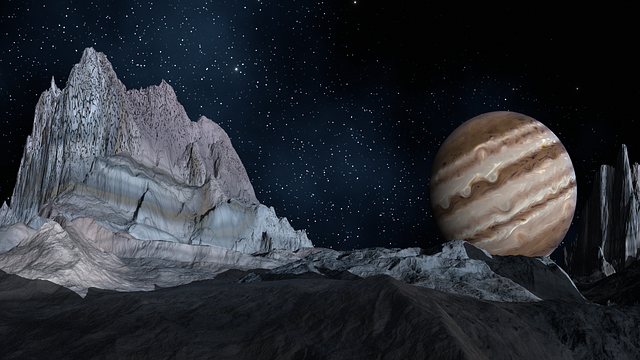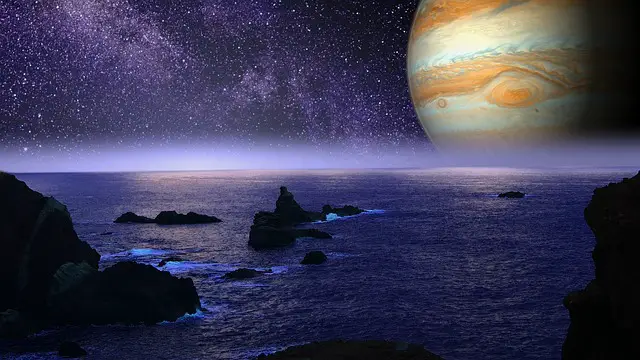
Jupiter is one of the most recognizable planets in our solar system due to its striking brightness.
Its brightness is caused by a combination of both its size and reflective properties, making it an awe-inspiring sight in both amateur and professional astronomers’ eyes.
In this article, we’ll take a closer look at why Jupiter is so bright, examining the scientific factors behind its luminosity.
Why is Jupiter so bright in the sky?
There are two main factors that make Jupiter so bright: its size and reflective properties.
Jupiter’s size
Jupiter is a giant gas planet, 11 times wider than Earth and more than 300 times its mass.
This makes Jupiter by far the largest planet in our solar system, which means that it reflects more sunlight back into space than any other planet.
The greater its size, the brighter it appears in the night sky.
Reflective properties
In addition to its size, Jupiter’s reflective properties contribute to its brightness.
Astronomers have found that the clouds of Jupiter reflect around 60% of the sunlight that hits them due to their high concentration of ammonia and sulfuric acid crystals.
This means that more light is reflected back into space than is absorbed, making the planet appear brighter.
Furthermore, Jupiter’s clouds are thick and reflective enough to be seen from Earth even without a telescope.
- Related post: What Would Happen If People Attempted To Set Foot On Jupiter
- Related post: What is The Temperature Of Jupiter
The reflectivity of Jupiter’s atmosphere
When observing Jupiter from Earth, you may have noticed that its atmosphere appears to be bright and reflective.
This is due to the presence of particles such as methane and ammonia in the atmosphere, which are highly reflective.
These particles scatter light rays in all directions, meaning that more light is reflected back into space than is absorbed—making Jupiter appear brighter than other planets in the night sky.
Impact of solar activity on Jupiter’s brightness

There are other factors that can influence Jupiter’s brightness, such as solar activity.
During times of increased solar activity, more ultraviolet radiation is emitted from the sun.
This radiation can cause changes in Jupiter’s atmosphere, leading to brighter or dimmer regions on its surface.
Solar activity can also affect the reflectivity of Jupiter’s clouds and cause them to appear brighter than usual.
- Related post: What If Jupiter Became a Star
- Related post: How Far Away is Saturn
Conclusion
Jupiter is one of the brightest planets in our night sky due to its size and reflective properties.
Its clouds are composed of high concentrations of ammonia and sulfuric acid crystals, which scatter light rays in all directions and reflect more light back into space than is absorbed.
Solar activity can also affect Jupiter’s brightness, making it appear brighter or dimmer than usual.
Overall, Jupiter’s brightness is a testament to its majestic beauty and awe-inspiring size.



